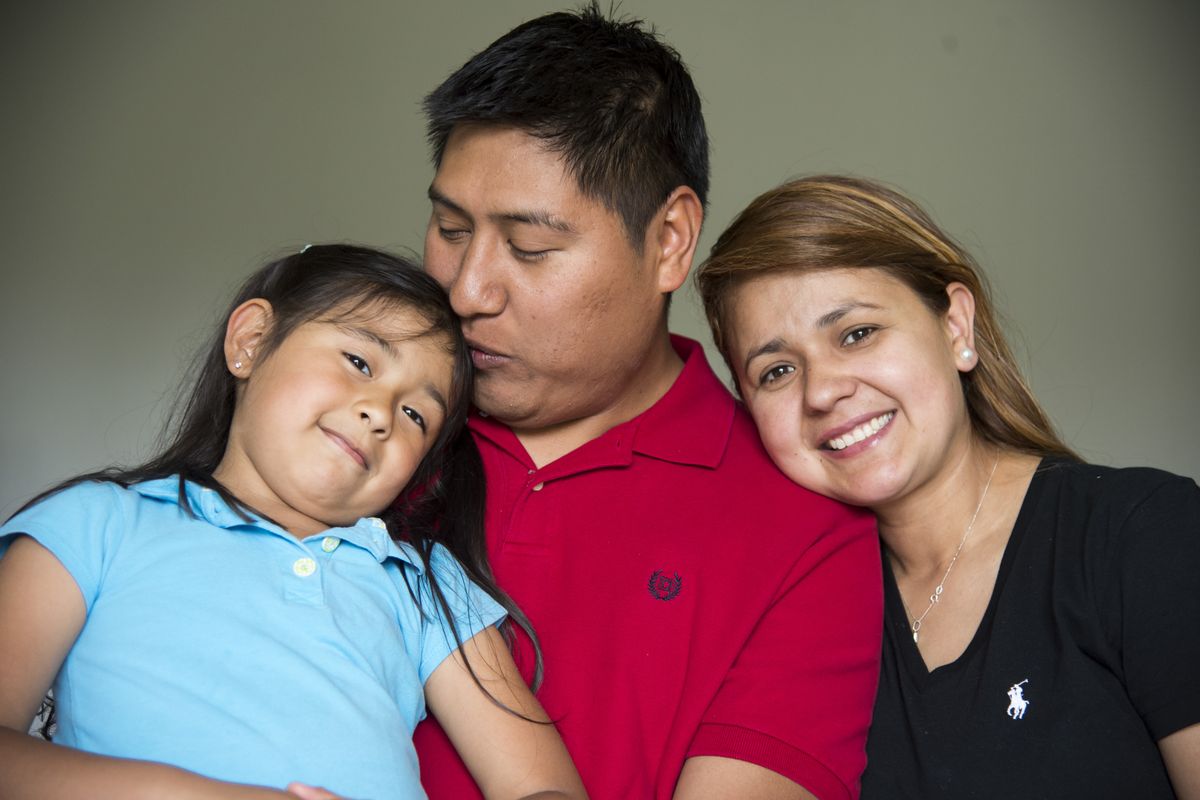This column reflects the opinion of the writer. Learn about the differences between a news story and an opinion column.
Shawn Vestal: Veteran, wife hope for waiver

Listening to those who get all beet-faced over immigration, one might get the idea that there are two, and only two, kinds of immigrants: “legal” and “illegal.”
But, as with all vapid oversimplifications, those categories simply don’t accurately reflect the human beings and their families who come to this country from other places. Thirty-one-year-old Jorge Guerrero and his family illustrate this perfectly: Guerrero was born in Mexico, came to America with his family in the 1990s as residents under President Ronald Reagan’s reforms, graduated from high school, joined the Navy and served overseas for eight years – during which he served in the Iraq War and became a naturalized citizen.
He met his wife – a Paraguayan native whose family now lives in Argentina – in an Italian restaurant in Madrid. He was in the midst of a protracted divorce, but they fell in love. When he was discharged honorably, they returned to America; he thought he’d finalize his divorce and they would marry and all would be well. Now he knows that was a mistake. Their decision for her to enter the country undocumented has now placed them in a legal limbo that threatens to force them to split up or leave the country for a decade.
Does that seem like measured, balanced justice?
To some, apparently, it does. As his own immigration battle has played out, Guerrero has listened to Americans debate the laws that govern the lives of people like him – sometimes discussing immigrants as if they’re not even people at all.
“It is really difficult for me,” he said. “There’s this sense that you’re not wanted.”
Guerrero has another term for those who come to this country: “aspiring citizens.” And he is frustrated – understandably, justifiably – with the drawn-out, inconclusive process that has greeted his family’s attempts to rectify a mistake they made years ago.
“This is an injustice and a travesty,” he wrote in a recent letter to the editor, discussing the possibility that his family might be split up by its immigration status. “Not one more family should be torn apart. We need Congress to act now to create a common-sense immigration process that recognizes the hardships and contributions of people moving here, keeps families together, and creates a roadmap to citizenship for aspiring citizens.”
Guerrero graduated from Gonzaga University in May, with a bachelor’s degree in political science and communications studies. He is now headed to Buenos Aires, Argentina, for a year’s study in a graduate program in international relations. The plan was to return to GU after a year to continue his studies; now the coming months are filled with uncertainty.
His wife, Gloria Benegas, has applied for a waiver that would allow her to stay in the U.S. while working toward citizenship. Because she came to the country illegally, if she applies for residency, she can face a penalty of being prohibited from entering the country for 10 years. It’s a paradox for an undocumented immigrant – a rather dramatic disincentive for trying to clear things up through proper channels.
The waiver must show that it would be an extreme hardship for the family to separate. The merely typical hardship of breaking up a family will not suffice. Guerrero and Benegas applied for the waiver in March 2012, assuming the status would be worked out by now. They’re still waiting. Traveling to Argentina has several benefits for them – among them is the fact that her parents now live there. On the other hand, if she travels to Argentina without her immigration status approved, she might find herself effectively exiled from this country – the country her husband served honorably during wartime.
So Guerrero and their 5-year-old daughter are leaving soon for Argentina and hoping Benegas will be able to join them in the next couple of months with an approved waiver and a clean slate.
“It’s so hard,” Benegas said. “I’m very sad I can’t go.”
Guerrero is hopeful that all will be resolved in his family’s favor by the fall, though he knows “there’s always that chance that it will not be approved,” he said.
While Guerrero is frustrated by circumstances and the sometimes hostile nature of the immigration debate, he says he understands that some people feel threatened by immigration.
He sees it like this: “You have a pie. You want to conserve your pie. You don’t want someone else coming and trying to take your pie from you. These people are just trying to preserve their pie.”
Still, as a citizen, as a veteran, as a person who has pursued the path of the American Dream, he is hoping that there’s room for his family in that dream.
“I love my adopted country,” he said. “This country has been great to me. Not too great to us.”
